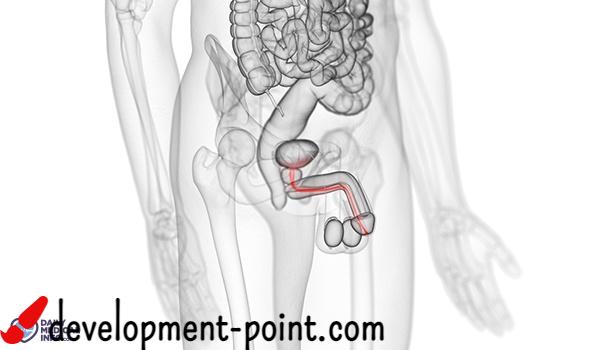Venous leakage: its causes, treatment, and its relationship to erectile dysfunction
Men are exposed to health problems that can affect sexual life, including what is known as venous leakage? Have you heard of this case before? Get acquainted with us, from the following paragraphs, on the most important things to know about venous leakage, its symptoms, methods of diagnosis and treatment, and some tips for its prevention as well.
What is a venous leak?
Normally, when a man is aroused, the blood vessels and arteries in the penis dilate and fill with blood, leading to an erection. In the event that a man reaches orgasm, the blood collected in the penis spreads back to the body and flows naturally, and any problem in this process leads to erectile dysfunction.
Venous leakage is a sexual dysfunction that occurs when a man experiences venous leakage of penile tissue, causing a weak erection. It is a type of erectile dysfunction in which the cavernous arteries of the penis do not get enough blood during sexual arousal.
Symptoms of venous leak
This condition can affect a man, depending on the age, and some of the most prominent symptoms and signs that may appear in a venous leak include the following:
- Inability to achieve or maintain an erection.
- A weak erection may not be enough to complete sexual relations.
- Short penis length.
- Smoothness of the glans penis (the cone-shaped end at the end of the penis) during erection.
Causes of venous leakage
A man can develop this health problem or be more likely to develop it when other health problems or conditions are present. The most common possible causes of venous leakage include:
- stress or mental stress.
- Having neurological problems.
- Infection with the side effects of certain medications.
- Chronic diseases such as diabetes.
- Presence of symptoms of urinary tract infection.
- Presence of insufficiency or deficiency in the hormone testosterone.
Diagnosis of venous leak
Among the frequently asked questions regarding this issue, is How do I know I have a venous leak? Some studies indicate that the following examinations are usually performed to discover this health condition:
- Ultrasound of the penis, but this test is not accurate in many cases.
- Dynamic Infusion Cavernosometry (DIC).
- Doppler ultrasound.
The doctor determines the best way to diagnose the condition, according to the patient’s condition, the severity of the disease, and many other factors.
Venous leakage treatment
Many of the treatments used to deal with erectile dysfunction can also work to treat venous leakage, including the following:
Psychosexual therapy:
This method is a combination of psychological counseling and sexual education, to overcome any obstacles such as stress and depression that could affect the sexual relationship with the partner. This method includes several sessions aimed at improving sexual communication between the two partners, especially in the event that the problem and erectile dysfunction occur due to psychological reasons.
Testosterone therapy:
Testosterone deficiency is one of the main causes of venous leakage, and this method relies on using a different set of topical treatments to improve testosterone deficiency in the body.
Penile implants:
Penile supports are used in severe cases of erectile dysfunction, and are considered a last resort when other treatments have not worked.
Intravenous leak medications:
Some medications that are used to treat leakage include:
Tips for preventing venous leakage
Making some lifestyle changes can help control the symptoms of venous leakage, including those caused by chronic diseases such as diabetes. These changes include:
- Eat more fruits and vegetables.
- Include protein and fiber in every meal.
- Take supplements to make up for any nutrient deficiencies in the body.
- Eat smaller, more frequent meals during the day.
- Reducing the amount of carbohydrates and sugary foods, which can affect blood sugar levels.
- Perform enough exercise to boost testosterone levels in the body.
- Reduce caffeinated drinks.
- Try to quit smoking and alcohol.
- Pay attention to the medications being taken, as they do not interfere with each other, which leads to health complications.

